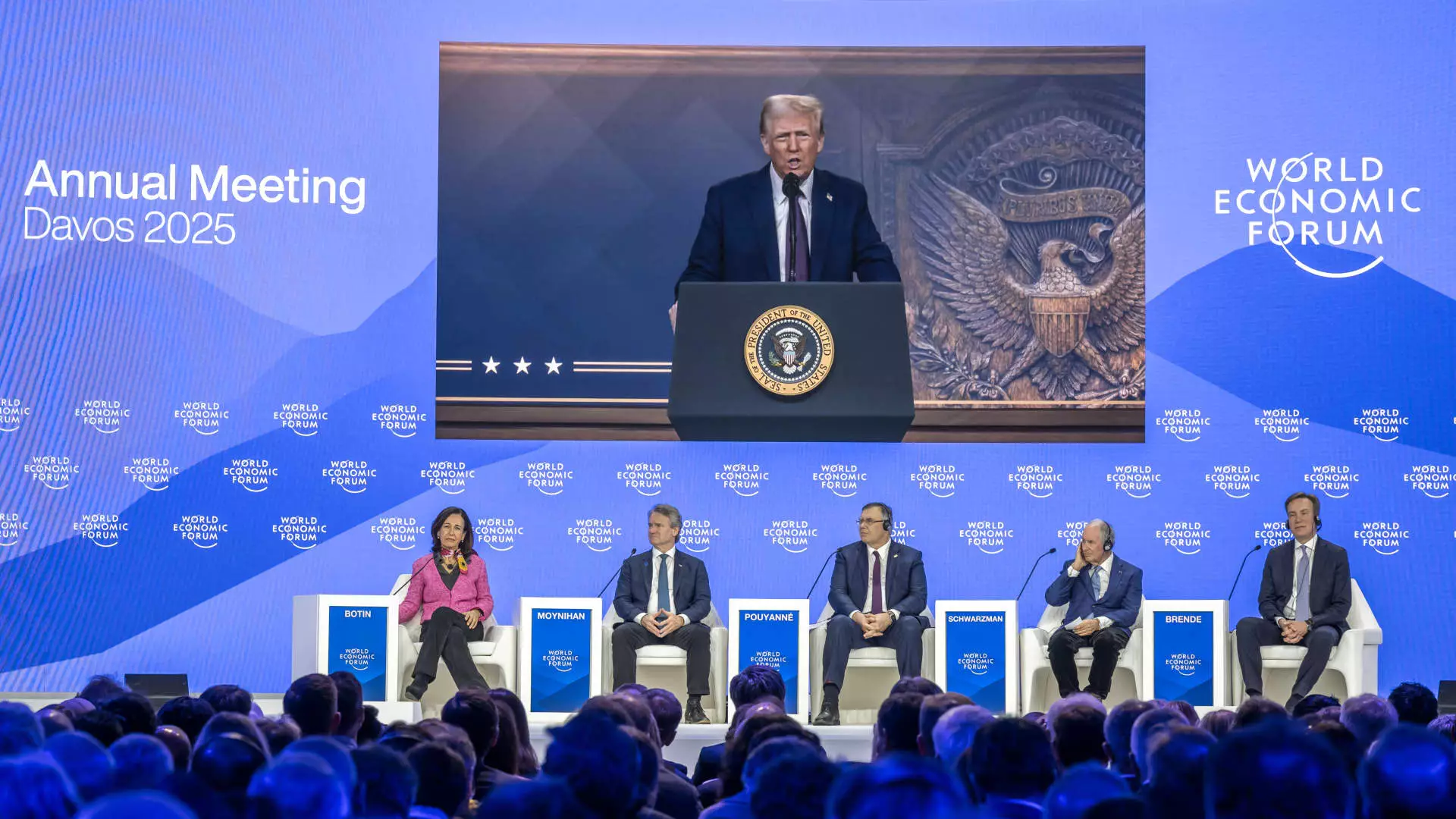In recent discourse surrounding the intersection of politics and finance, former President Donald Trump revived his allegations against the CEOs of America’s largest banks, asserting that they discriminate against conservatives. This claim, presented during a remote dialogue at the World Economic Forum in Davos, stirred a pot of controversy regarding the relationship between political ideology and banking practices. Although statements from Bank of America and JPMorgan Chase firmly deny Trump’s contentions, the implications of such allegations merit deeper scrutiny.
During a question-and-answer session, Trump specifically targeted Brian Moynihan, CEO of Bank of America, and Jamie Dimon, CEO of JPMorgan Chase. He insisted that these institutions were not accommodating conservative clients, urging them to reassess their policies. “I hope you start opening your bank to conservatives,” Trump stated, implying that these banks are part of a broader culture of exclusion directed at individuals and organizations with conservative viewpoints.
Trump’s remarks may resonate with a specific audience, especially those who feel marginalized or disregarded by corporate entities perceived to be leaning politically progressive. This narrative is not new; it has been a recurring theme in Trump’s rhetoric as he positions himself as the advocate for conservative voices, particularly in sectors like banking, where financial institutions are often viewed as being at odds with traditional values.
The immediate rebuttal from both Bank of America and JPMorgan Chase was swift. Officials from these banks emphasized their commitment to serving over 70 million clients without political bias. Statements asserted that neither institution has ever closed accounts based on political beliefs, instead highlighting compliance with regulatory requirements that necessitate them to re-evaluate client relationships based on risk and legality rather than ideology.
What stands out in their defenses is the assertion that operational decisions are dictated by laws and regulations in the post-2008 financial landscape, compelling banks to avoid clients in higher-risk industries. Given this context, accusations of political discrimination become more nuanced when examined alongside the historical backdrop of heightened regulatory scrutiny following financial crises.
The term “de-banking” has emerged to describe accounts being closed or denied, particularly for sectors that have become politically contentious. For instance, accusations levied against Bank of America included claims of account cancellations tied to religious groups and politically conservative organizations. Critics like Kansas Attorney General Kris Kobach have highlighted instances where groups perceived to hold conservative views found themselves abruptly de-banked.
In response, Bank of America clarified that such cancellations typically arise from issues unrelated to political affiliation, such as inconsistencies in account usage or compliance with legal requirements. This raises critical questions about how banks navigate the conflicting demands of regulatory compliance versus their public image and client base.
The persistent allegations voiced by Trump and his allies, including influential figures in the tech industry, exemplify a growing concern among conservative circles regarding systemic bias in financial services. Marc Andreessen’s comments about startup founders being de-banked cater to the narrative that political ideologies might jeopardize access to essential financial resources. This environment can foster an atmosphere of distrust between certain political factions and major financial institutions.
However, one must consider whether these claims reflect a genuine systemic issue within the banking industry or if they serve as strategic rhetoric meant to galvanize support among the conservative base. Indeed, the subjective nature of what constitutes discrimination leaves room for interpretation that can divert attention from the regulatory challenges banks face today.
Amidst political controversy, the stock market displayed resilience, with shares for both Bank of America and JPMorgan Chase showing positive movement following Trump’s statements. This juxtaposition between political rhetoric and market performance reveals a complex landscape where public perception can affect financial sentiment, yet the operational integrity of the banking sector remains instrumental in maintaining economic stability.
Given the current climate, banks may find themselves at a crossroads where they must navigate political pressures while adhering to stringent regulations. Continued engagement with clients from diverse political backgrounds could be critical in asserting their commitment to inclusivity and transparency, essential attributes in the modern financial arena.
Ultimately, Trump’s accusations reinforce an ongoing dialogue about the perceived intersection of politics and economics. Whether rooted in actual grievances or serving as a politically motivated narrative, these discussions shape the evolving landscape of banking in America and influence how institutions engage with their diverse clientele. As we move forward, it is crucial for banks to strike a balance between compliance, ethical practices, and the need to foster an inclusive environment for all customers.

